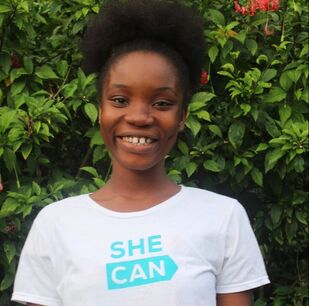- Since SAT and ACT scores are not required, some high schools have switched to pass/fail grades, and most extracurricular activities have been cancelled due to COVID-19, you will need to stand out through your other attributes.
- Recommendation letters and essays will get a closer read.
- Admissions officers will pour over transcripts looking for academic rigor and any patterns that help bear out a student’s academic profile.
- Don’t write 650 words about COVID-19 fatigue. There is a short new question on the Common App where you can write about any extenuating circumstances you have experienced as a result of COVID-19 that are relevant to your application.
- Do your essays and your activities reflect your character?
- Admissions directors are still figuring things out, so requirements will be different from school to school. Visit the websites of schools to see if there are options for virtual tours or interviews. If so, take advantage of them.
Read the full article or listen to the podcast at NPR-How The Coronavirus Has Upended College Admissions
|
While most colleges are still figuring out how they will re-calibrate their admissions processes this year, here are are a few takeaways from NPR's article:
0 Comments
 "The world is one person," says Janet. "The world is one person," says Janet. For all you teenagers and 20-somethings who are getting impatient with staying at home and keeping a safe distance from your friends, meet Janet Kwenah of Liberia. Janet is a SHE-CAN scholar I mentored last year and this is her second time around dealing with a deadly disease! Ebola started to rip through Western Africa in 2013. Looking back on that epidemic, Janet said that Ebola was different; “We were so confused about what to do, but now, we follow preventive measures.” She said she and her peers have been more creative and innovative during the shutdown; they make things with their own hands, including face masks. Janet’s family of eight children is dependent on the one income from her mother, who sells in the market. Years ago, Janet “escaped” the reality of her living situation by starting to volunteer. Her life was looking brighter and then the Vice Principal announced at school one day that a deadly virus called Ebola was spreading quickly in Liberia. All schools were shut down and a nationwide curfew went into effect. Janet lived in fear that her mother was exposed to danger when she left the house each day to sell in the market, and they had a thorough cleaning regimen when she returned each day. When her uncle, who lived them, died from other causes during the virus breakout, neighbors assumed it was Ebola and avoided Janet’s family. She felt even more isolated. What Janet missed the most during the Ebola quarantine was volunteering. She realized that she didn’t volunteer to escape the reality of her family’s situation, but because she believed “Whatever change I want to see should start with me, and that change should start now.” When things settled down, Janet and some friends started Think Kids Liberia, which focuses on the development of Liberian children through education, health, charity, advocacy, and creative activities. “So many people in my country have lost their hope,” Janet said, “But when I see the kids looking up to me, and hear young ladies say I motivate them, and my parents speak with pride, I think of all the people’s hopes I’m keeping alive.” When I asked Janet if she had any advice for my American students struggling with the COVID-19 quarantine, she said, “We should all stay calm, spend time with our families and find things that we can do to keep us going. “If you are a believer,” she added, “praying is advisable.” Ebola left scars and fears in her heart, but these experiences also made her unique and strong. “We beat Ebola,” she said, so she is confident we will beat Coronavirus, too. Janet was accepted to Lafayette College to study International Affairs with a focus on Children’s Development. Lafayette is going 100 percent remote this fall and, to date, Janet cannot secure a visa. SHE-CAN’s Plan B is to rent a home near Monrovia so all the Liberian students can live and study together. Janet remains optimistic, and hopefully she will get to campus in the spring.  SHE-CAN is a California-based organization that builds female leadership in post-conflict countries by equipping and empowering young women with education, mentorship and leadership skills need to change their nations and the world. For more information: shecan.global #SHECAN
|
Jody Cohan-FrenchWriting Tips Archives
April 2025
Categories
All
|

 RSS Feed
RSS Feed